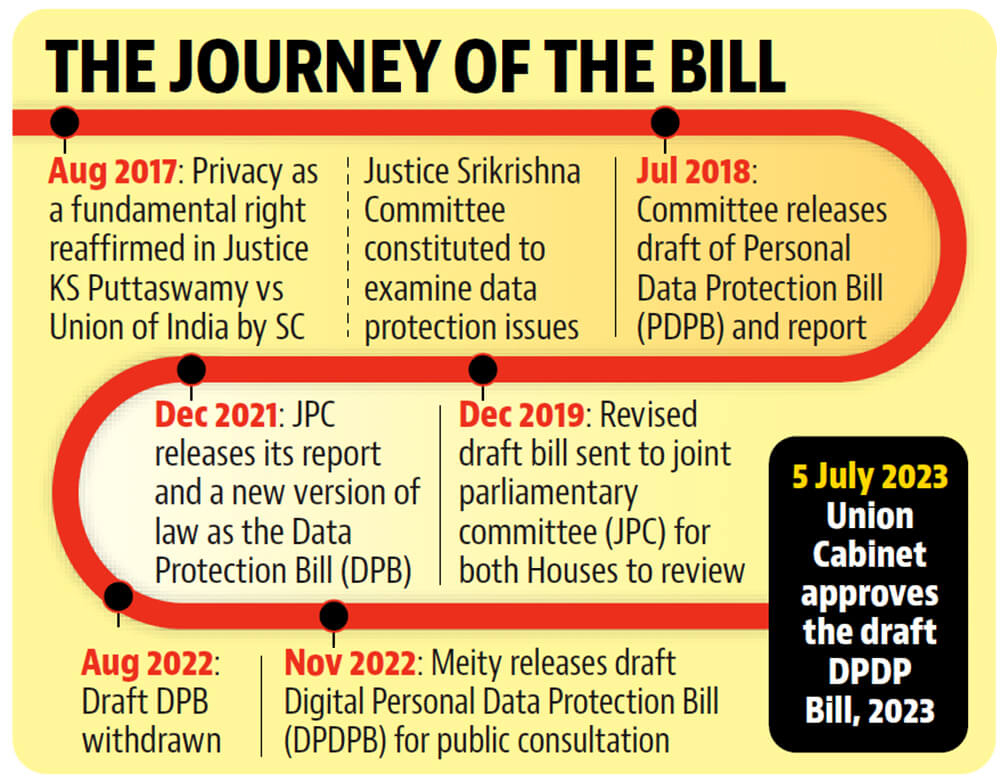Context:
Recently, Congress leader Jairam Ramesh has written to Minister for Electronics and Information Technology Ashwini Vaishnaw, urging the repeal of Section 44(3) of the Digital Personal Data Protection Act, 2023. Activists and opposition leaders are expressing significant concerns over Section 44(3) of the Digital Personal Data Protection Act, 2023 (DPDP Act), alleging that its provisions could severely undermine the Right to Information Act, 2005 (RTI Act).
Background:
The DPDP Act aims to regulate the processing of digital personal data in India, balancing individual privacy rights with the need for data processing for lawful purposes. Section 44(3) of this Act proposes an amendment to Section 8(1)(j) of the RTI Act, altering the existing framework governing exemptions related to personal information.

The Controversial Amendment
Prior to the amendment, Section 8(1)(j) of the RTI Act stated that there was no obligation to disclose information that relates to personal details, the release of which does not serve public interest or would cause unwarranted invasion of privacy, unless the public interest in disclosure outweighs the harm. This provision ensured a balance between individual privacy and the public's right to know.
The proposed change under Section 44(3) seeks to replace the existing clause with a broader exemption, stating that public authorities are not obligated to provide information that "relates to personal information." Critics argue that this change could lead to excessive withholding of information under the guise of protecting privacy, thereby reducing transparency and accountability in governance.
Key Concerns Raised by Activists and Legislators
1. Erosion of Citizens' Right to Information: Congress leader Jairam Ramesh has criticized the amendment, suggesting that it effectively eliminates the safeguards that ensured citizens had equal access to information as legislators. He argues that the existing provisions already contained adequate measures to protect privacy while promoting transparency.
2. Potential Government Overreach: There is apprehension that the amended provision could empower public authorities to withhold a wide range of information by broadly interpreting what constitutes personal data, thereby shielding government actions from public scrutiny.
3. Impact on Transparency and Accountability: Opponents fear that the amendment might be used to justify non-disclosure of information that is crucial for holding public officials accountable, thus undermining democratic principles of transparency and accountability.
Conclusion
The debate over Section 44(3) of the DPDP Act underscores the delicate balance between protecting individual privacy and ensuring public access to information. As discussions continue, it remains to be seen how legislators and policymakers will address these concerns to uphold the principles of transparency and accountability while safeguarding personal privacy rights.







